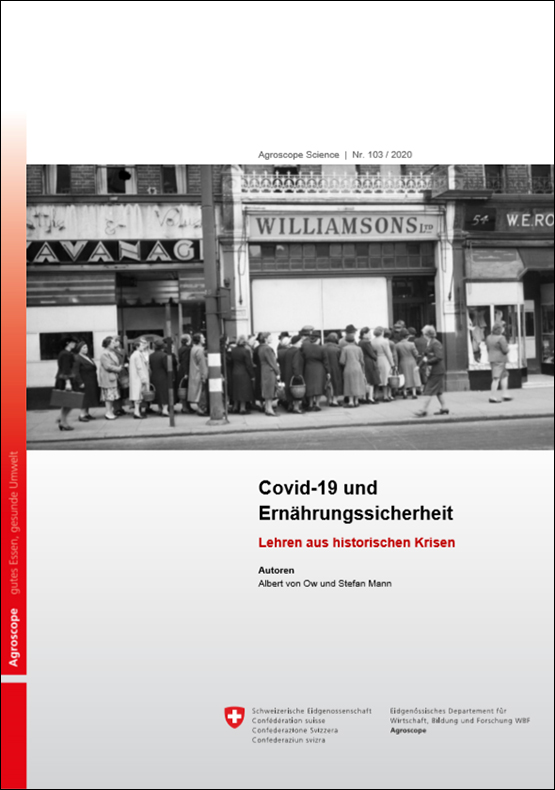On 28 April 2020, the Food Division of the Federal Office for National Economic Supply (FONES) tasked Agroscope with analysing momentous historical events in terms of their impact on the food supply, and drawing conclusions from their findings as to the potential implications of COVID-19 for the provisioning of Switzerland. Based on a short description of past crises and a comparison of these with the COVID-19 crisis, conclusions were drawn for the short- and medium-term food supply in Switzerland:
Historical perspective
- Switzerland experienced repeated food-supply constraints into the 19th century and even from time to time in the first half of the 20th century. Since then, and despite higher prices, supplies for the Swiss population have been sufficient in both quantitative and qualitative terms.
- More-recent health epidemics in parts of the world, such as SARS (2003) and swine flu (2009), had no impact on food supply in Switzerland.
- For numerous regions outside of Europe, the 2007–2009 global financial and economic crisis led to constraints regarding security of supply, whilst this was not the case in Switzerland. As a wealthy country with high food prices, Switzerland is well protected against shortages caused by economic factors.
Consequent assessment for the COVID-19 situation
- Globally, conditions over the course of the COVID-19 crisis in terms of food security have been significantly better than they were at the outset of the financial and economic crisis: Warehouses are full and harvest forecasts are good, low energy prices hold down production costs as well as food competition from biofuels, and trade relations are diversified.
- Most likely, difficulties with work and transport capacities can be expected. For the production of staples, however, which is well mechanised, only local and short-term difficulties are to be expected.
- All in all, historical observation shows that Switzerland need not worry unduly in terms of its food supply during COVID-19. However, should infection and mortality rates climb significantly more sharply over the further course of the pandemic than in the past, the impact on both the global and Swiss food situation cannot be assessed from a historical perspective.







